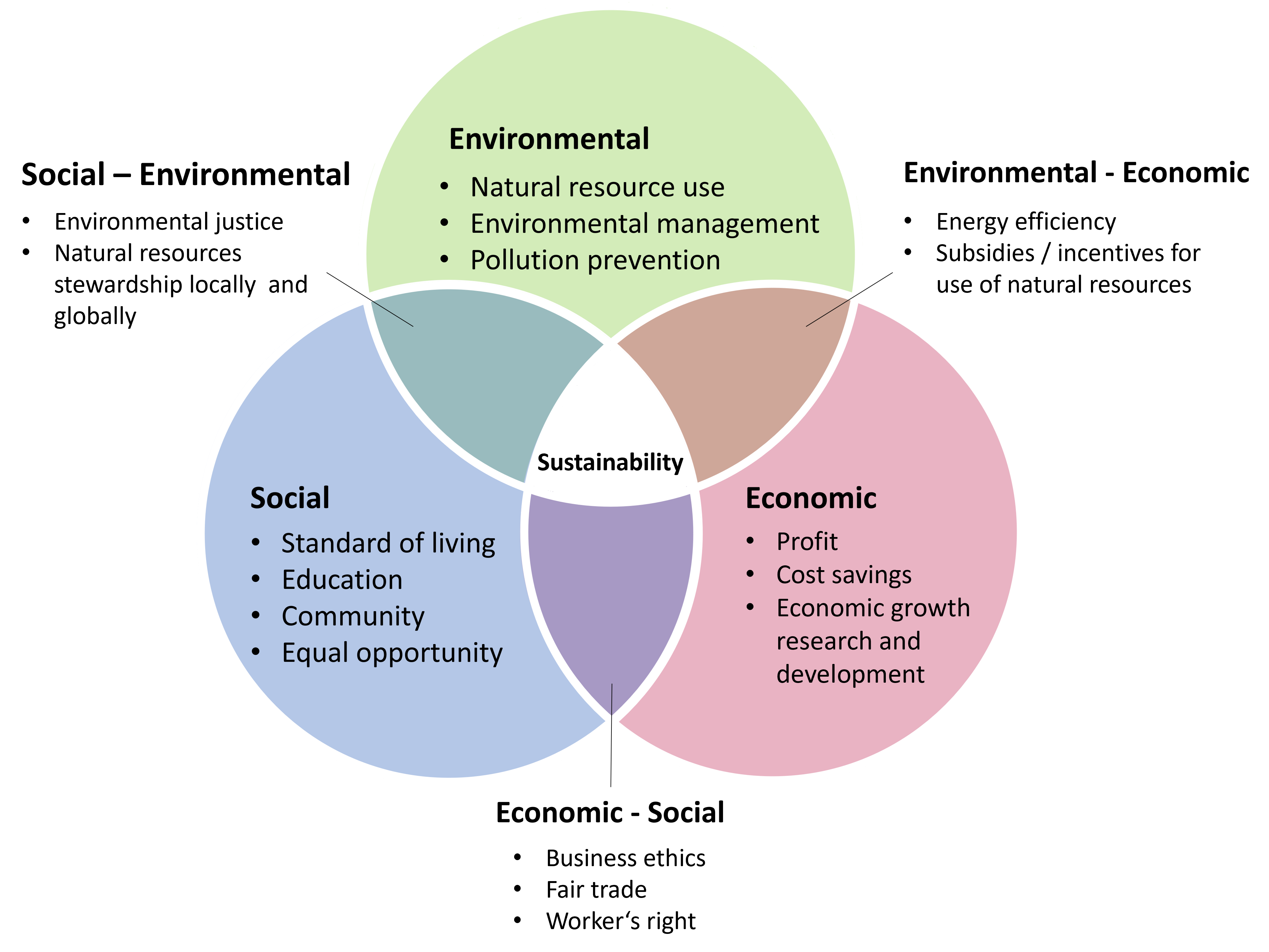What is sustainable development?
Sustainability has been defined in many ways, nevertheless the most quoted definition was coined by World Commission on Environment and Development (WCED).
WCED defines it as development that meets the needs of the present without compromising the ability of future generations to meet their own needs.
We live in an era where society is getting more aware of the impact people and organizations have on the environment. Thus, many organizations strive for a more sustainable future with the application of sustainable business practices.
Sustainable development has three main pillars: economic, environmental, and social.
Implementation of different standards, evaluation of activities and procedures is a big step towards realization of the sustainable strategy.

